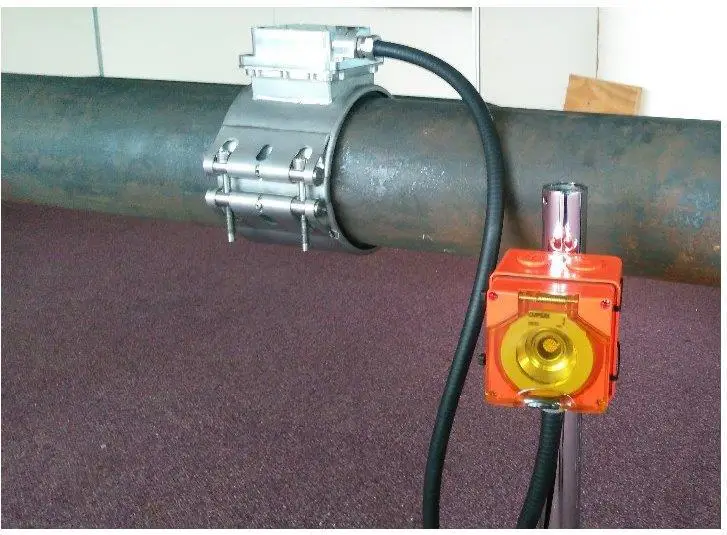iPerm: Guided wave monitoring tool
Background
With annual losses of approximately $10 billion due to oil leaks in the United States alone, oil and gas companies could benefit considerably from improved pipeline safety and reliability. Research shows that although 30% of all oil pipeline accidents are attributable to corrosion, the average annual corrosion-related cost for monitoring, maintenance and replacement of pipeline stands at $7 billion. At present, there are more than 40 major transnational oil and gas pipelines traversing Europe, accounting for over 34,565km of strategically critical large-bore pipeline infrastructure. According to the European association of oil companies, more than 15,900km (46% of the total) is over 40 years old, while only 1,120km (6% of the total) is less than ten years old.
This challenge is impacting negatively upon European society and its economy and needs to be addressed immediately. But oil and gas companies are unable to react to this challenge on their own. Global oil prices have decreased significantly since their 2014 peak and future prices for delivery of Brent crude in 2020 show that the markets expect oil prices to remain low for the following five years. Addressing this structural weakness in oil prices require more than financial adjustments; it demands a change in the industry’s approach to technology: from operational technologies to technology-enabled strategies that are decidedly operational in focus. Installing more operational hardware and software with limited pre-defined tags (eg pressure, temperature, volume, vibration) and following rules-based approaches (eg statistical, historical) would hardly reduce risks or improve reliability of a network, whereas increasing manual inspection frequency comes at a prohibitive cost for the new normal of low oil prices. The situation calls for a shift toward data-enabled infrastructure; in other words, investing in sensor systems that create new data.

Objective
The principal goal of this project is to optimise the manufacturing process of the iPerm system. iPerm is a monitoring system employing Plant Integrity’s patented guided wave technology, permanently mounted on the outside of pipelines in environmentally hostile, safety critical or difficult-to-access areas, creating data about potential leakage.
Benefits
Manufacturing of low-cost, high-performance and permanently installed guided wave system capable of assessing the condition of the structure.
Project Partners
- Plant Integrity Ltd
- Innora Robotics
- Tupras
- Hortec Electronics
- Brunel Innovation Centre
For more information, please visit the iPerm website.
Meet the Principal Investigator(s) for the project

Professor Tat-Hean Gan - Professional Qualifications CEng. IntPE (UK), Eur Ing BEng (Hons) Electrical and Electronics Engg (Uni of Nottingham) MSc in Advanced Mechanical Engineering (University of Warwick) MBA in International Business (University of Birmingham) PhD in Engineering (University of Warwick) Languages English, Malaysian, Mandarin, Cantonese Professional Bodies Fellow of the British Institute of NDT Fellow of the Institute of Engineering and Technology Tat-Hean Gan has 10 years of experience in Non-Destructive Testing (NDT), Structural Health Monitoring (SHM) and Condition Monitoring of rotating machineries in various industries namely nuclear, renewable energy (eg Wind, Wave ad Tidal), Oil and Gas, Petrochemical, Construction and Infrastructure, Aerospace and Automotive. He is the Director of BIC, leading activities varying from Research and development to commercialisation in the areas of novel technique development, sensor applications, signal and image processing, numerical modelling and electronics hardware. His experience is also in Collaborative funding (EC FP7 and UK TSB), project management and technology commercialisation.
Related Research Group(s)
Brunel Innovation Centre - A world-class research and technology centre that sits between the knowledge base and industry.
Partnering with confidence
Organisations interested in our research can partner with us with confidence backed by an external and independent benchmark: The Knowledge Exchange Framework. Read more.
Project last modified 12/10/2023